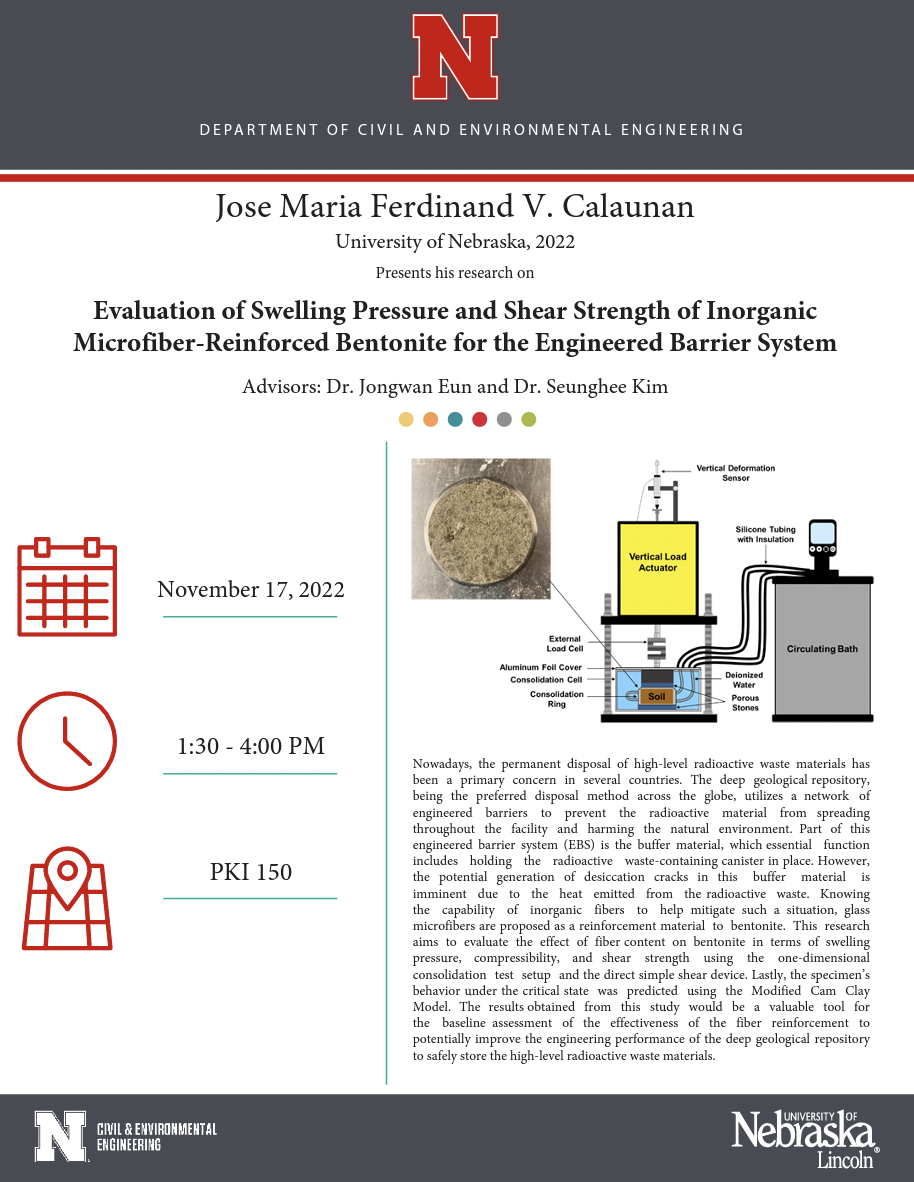
Nowadays, the permanent disposal of high-level radioactive waste materials has been a primary concern in several countries. The deep geological repository, being the preferred disposal method across the globe, utilizes a network of engineered barriers to prevent the radioactive material from spreading throughout the facility and harming the natural environment. Part of this engineered barrier system (EBS) is the buffer material, which essential function includes holding the radioactive waste-containing canister in place. However, the potential generation of desiccation cracks in this buffer material is imminent due to the heat emitted from the radioactive waste. Knowing the capability of inorganic fibers to help mitigate such a situation, glass microfibers are proposed as a reinforcement material to bentonite. This research aims to evaluate the effect of fiber content on bentonite in terms of swelling pressure, compressibility, and shear strength using the one-dimensional consolidation test setup and the direct simple shear device. Lastly, the specimen's behavior under the critical state was predicted using the Modified Cam Clay Model. The results obtained from htis study would be a valuable tool for the baseline assessment of the effectiveness of the fiber reinforcement to potentially improve the engineering performance of the deep geological repository to safely store the high-level radioactive waste materials.